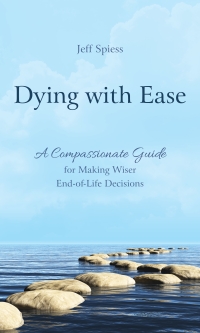We'd Be Happier If We Were Crying
 Jem Finch got it right.
Jem Finch got it right.
My wife and I recently saw Aaron Sorkin’s stage adaptation of To Kill a Mockingbird, starring Ed Harris as Atticus Finch, alongside a superb cast in a riveting production. The town of Maycomb, Alabama was angry. Some people were angry at Tom Robinson, the strong but injured black man who was accused of raping a white teenager named Mayella Ewell, and at Atticus Finch, the local attorney acting as Mr. Robinson’s defense counsel. Others were angry at the cruelty and prejudice rampant in the town, epitomized by the KKK and their sympathizers.
Jem Finch was Atticus’ son, and he watched as his father demonstrated not only that Tom Robinson was not guilty, but that the most likely perpetrator of Mayella Ewell’s beating and rape was her father. Jem also watched as the jury of twelve white men brought a verdict of guilty, with the sentence of execution. Author Harper Lee says that Jem’s “face was streaked with angry tears” as he told his father, “It ain’t right, Atticus.” Jem saw injustice, he saw people he had been taught to respect knowingly betray justice and send an innocent man to his death, he saw everything he thought his world stood for collapse as he looked on. And he wept.
Some 2600 years ago a man named Jeremiah also saw that his world was collapsing. He was a prophet in Jerusalem who recognized that the core values on which his home nation, Judah, was built had been abandoned, that the government had become corrupt and the population complicit. He saw the threat of invasion by a major enemy power in Babylon and the fact that the rot in his own country rendered it defenseless. It was only a matter of time until Judah would be conquered and destroyed.
Jeremiah spoke truth to power and he did not mince words. He has given his name to the English term “jeremiad,” used to describe a persistent scolding screed, a harping on a message, especially one of judgment. The words in the book attributed to him are often harsh: “You have polluted the land with your whoring and wickedness,” and “on your skirts is found the lifeblood of the innocent poor.” Even worse was his condemnation of the authorities who denied the facts of what was going on, those who say, “peace, peace, when there is no peace.” Jeremiah clearly identified the corruption of the society around him, easily foresaw its impending ruin, and proclaimed that truth using every media outlet available to him.
But Jeremiah, though screaming a message of doom, did not let anger about what was happening have an upper hand. He recognized the foolishness of the people around him, “they are stupid children, they have no understanding.” He lost hope for recovery, “the harvest is past, the summer is ended, and we are not saved…is there no balm in Gilead? Is there no physician there?” His lament was heart-wrenching, “my joy is gone, grief is upon me, my heart is sick…O that my head were a spring of water and my eyes a fountain of tears so that I might weep day and night.” Like Jem Finch, Jeremiah saw devastation of his world, and he wept.
In America, like fictional Maycomb, anger is rampant. Some rail against what they see as permissive immorality: legal abortion, gay marriage, and exclusion of their kind of religion from the public sphere. Others direct their ire at politicians who abuse their authority and lie about it, those who tolerate and encourage prejudice and violence, and the cruel exclusion of persons trying to find a safe new life in the USA. There is the persistent and pervasive intolerant screaming about gun rights and climate change. My primary social values are justice and honesty, and I get angry that they seem to have been ripped away. All who vociferate, even those who don’t speak out, whose anger seethes inside, see the destruction, the collapse of the world they thought they understood, the world as they thought it should be.
It is common to be angry when we feel robbed of what we thought was ours, what is precious to us. Anger is easy, but it doesn’t change anything. Anger is part of the normal grieving, a natural response to loss. But is not the final phase in those processes because it doesn’t produce resolution or healing. It burns a hole in peace of mind and the ability to respectfully function in relationships and in society. Anger alienates, but sorrow unites. Weeping has a healing effect. Crying is something we can do together. Tears are something we can share. And the natural human response to someone crying is comfort, not rejection.
Jem asked his father, “How could they do it, how could they?” Atticus’ answered, “I don’t know, but they did it. They’ve done it before and they did it tonight and they’ll do it again, and when they do it — seems that only children weep.” Would that we could be that childlike.
Citations: Harper Lee, To Kill A Mockingbird, chapter 22, Jeremiah chapters 2, 3, 4, 8, & 9
Photo by Arwan Sutanto on Unsplash

